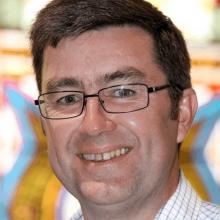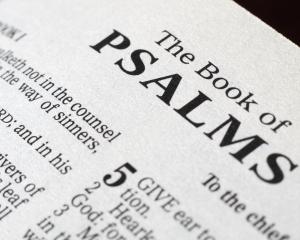
Covid lockdowns had a part to play with this decline but something far more foundational is causing this absence from our classrooms. Does it shock you to think that more than half our school age children could be described as truants?
As a parent of three boys who all went through the public schooling system, I was generally happy with the quality of education they received. During their time at school however, a marked shift in the government-controlled curriculum has occurred which would make me reconsider how I would educate my children today. This year the "refreshed curriculum" will be rolled out in schools across the country and my first reading of this material gives me reason for concern, not the least being the selective and narrow take on our history.
A key question for any society to consider is: "Who is responsible for educating our children?" It might surprise you to hear me articulate that I don’t believe it is our school teachers or the government. God has ordained that mums and dads are responsible to raise our children and education is a key part of that responsibility.
Concern about schooling is not a new phenomenon. Eighty years ago C.S. Lewis gave a series of lectures which became the book titled The Abolition of Man. The book opens with the following sentence: "I doubt whether we are sufficiently attentive to the importance of elementary textbooks". He then goes on to reference a recently released (1939) textbook for English schooling called The Control of Language: A Critical Approach to Reading and Writing. His main critique of this textbook was its philosophy of education that denied an objective framework for morality and truth. Ten years earlier a similar philosophy had landed in the United States which is now pervasive across Western education, including primary, secondary and university institutions in New Zealand. It represents a shift from teaching the objective to the subjective. The individual psychological self now sits at the centre of the universe and any sense of objective beauty, virtue or truth is refuted.
In the opening chapter, Lewis quotes Aristotle saying "that the aim of education is to make the pupil like and dislike what he ought". I wonder how many of our public teachers would agree with this statement first articulated 2500 years ago? I wonder how many parents would agree with it? Lewis of course was taught by a classical liberal education that drew heavily on the Latin thinkers of ancient Greece.
He famously also converted to Christianity. This combination of reasoned investigation combined with God’s revelation of moral truth has shaped Western education for centuries. New Zealand however embarked on an education system which has actively excluded biblical truth from the classroom and I would confidently argue, our culture is now reaping the harvest of moral decay from this exclusion. A number of parents are waking up to this reality and are taking the courageous step of schooling their children at home. While the number of home-schooled children in New Zealand is still small (about 1.3%) the number increased by 80% over the last two years.
The merits of a publicly funded education system are clear but so too are the weaknesses.
I agree with C.S. Lewis; I too "doubt we are sufficiently attentive to the importance of elementary textbooks". When those textbooks are promoting a critical approach to learning that places the child at the centre or teaches our children to above all, trust their feelings, parents are right to question the system. They may even need to consider alternative ways to educate their children.
In my lifetime, our society has embraced, with financial incentives from the government, the practice of schooling our children at ever younger ages. The "preschool" industry is a relatively recent innovation that has emerged for economic reasons rather than solid educational reasons.
So my encouragement to you if you are a parent of school aged children is to pay careful attention to the elementary textbooks at school and to think long and hard about the responsibility and privilege you have to educate your children.
■ The Rev Stu Crosson is senior minister at Hope Church, Dunedin.












